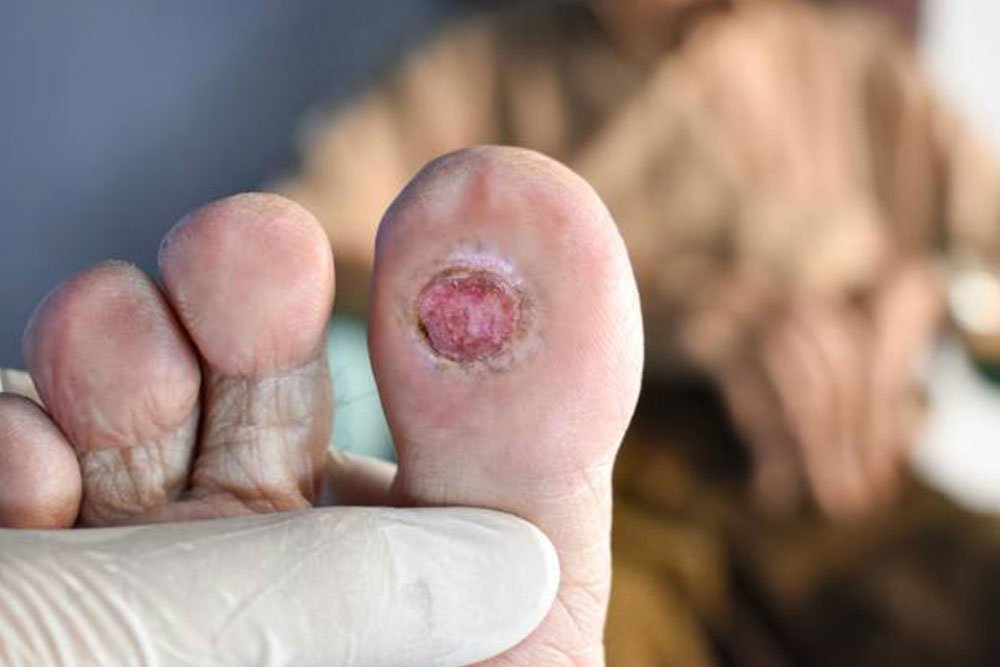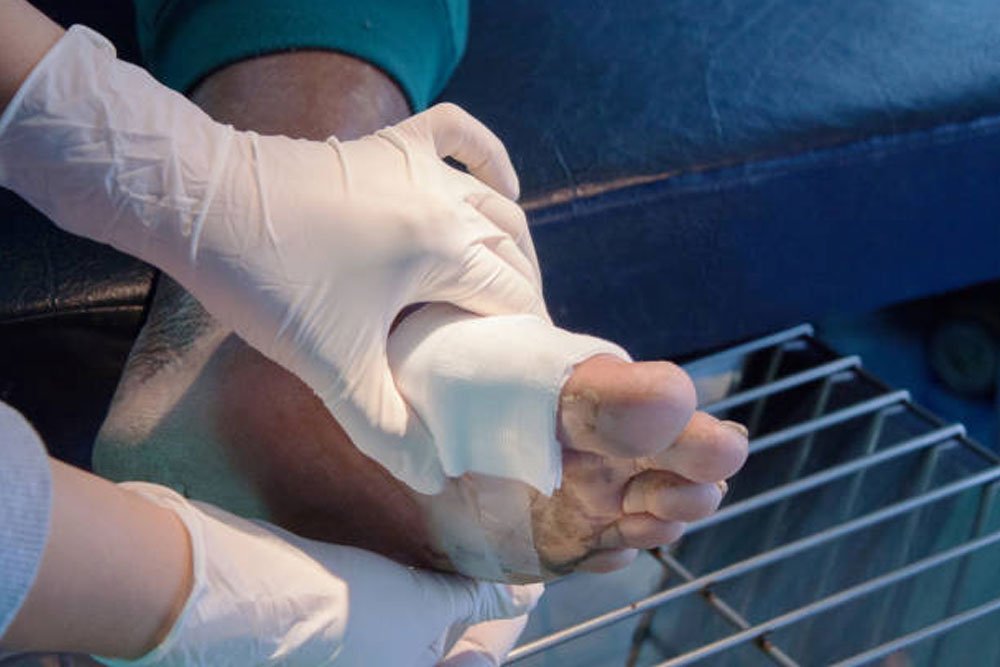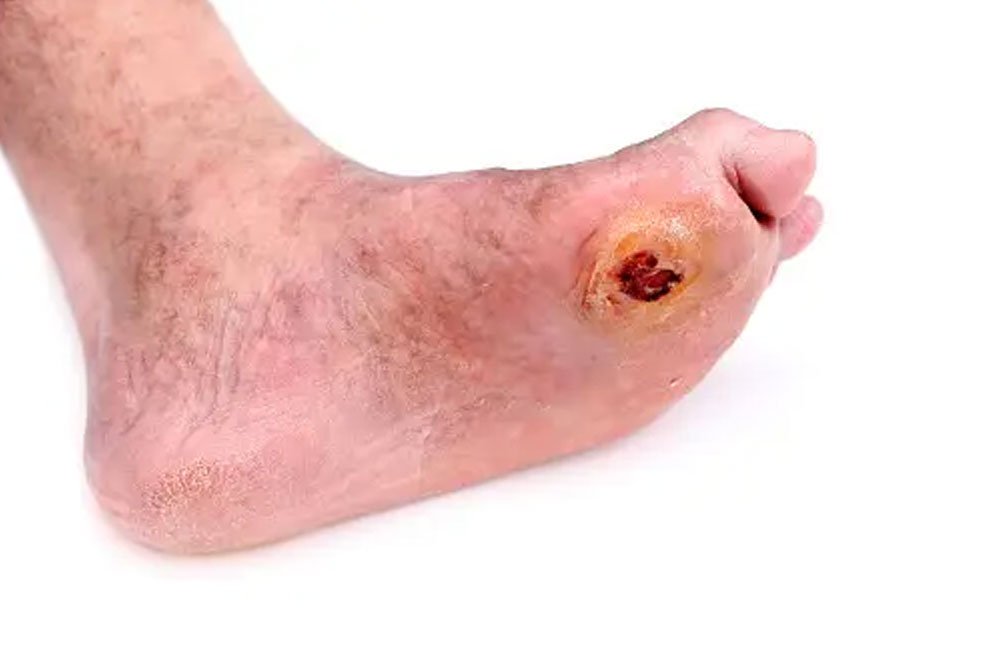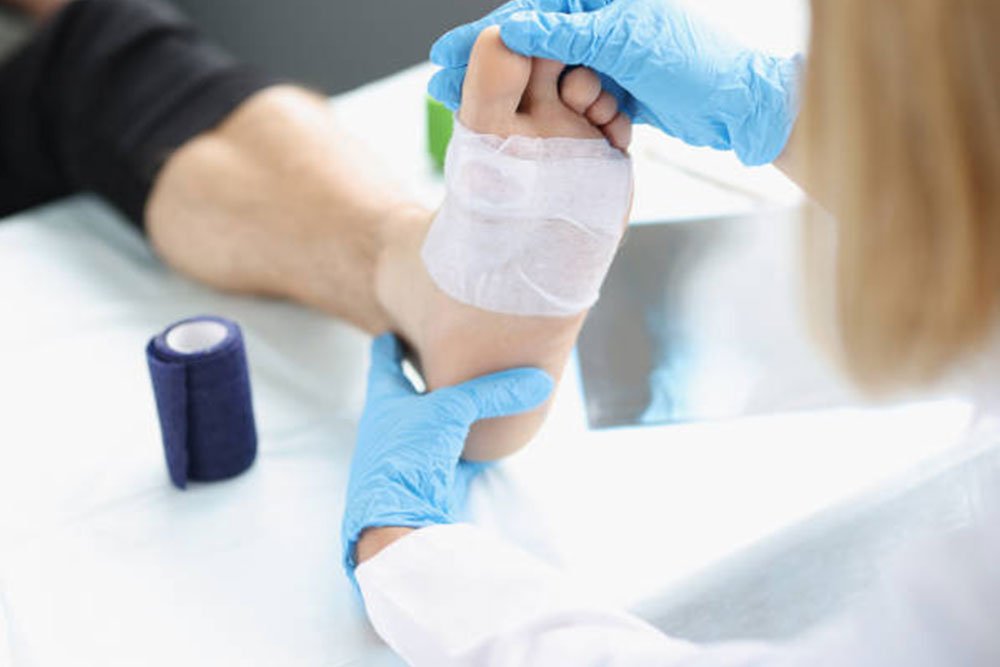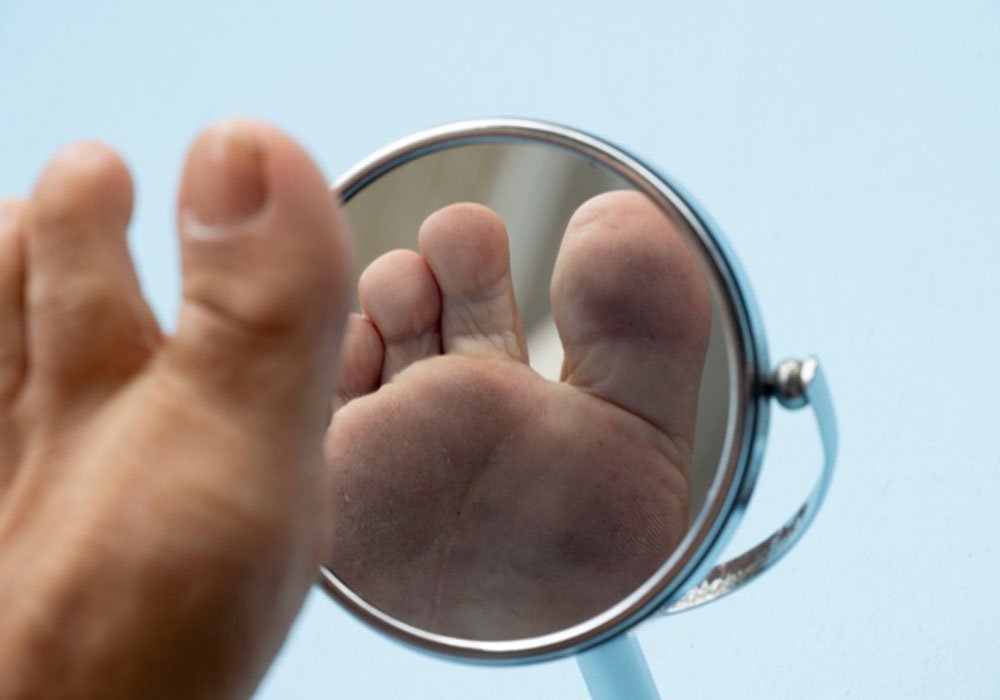How Can Diabetes Affect Your Feet?
Overtime, Diabetes may cause nerve damage, also called Diabetic Neuropathy that can cause tingling and pain, and can make you loose feeling in your feet thereby causing no sensation to cuts due to stones or pebbles when barefoot leading to infection.
Diabetes also lowers the amount of blood flow in your feet delaying the healing time taken to heal infection in your feet. This may sometimes lead to Gangrene.Gangrene and foot ulcers if not treated leads to amputation of toe,feet or part of your leg.
Good foot care is very important to prevent serious infections and gangrene.
Although rare, nerve damage from Diabetes can lead to changes in the shape of your feet such as Charcot’s foot . Charcots Foot may start with redness , warmth and swelling. Later, bones in your feet can shift or break, which can cause your feet to have an odd shape such as “Rocker bottom” .
